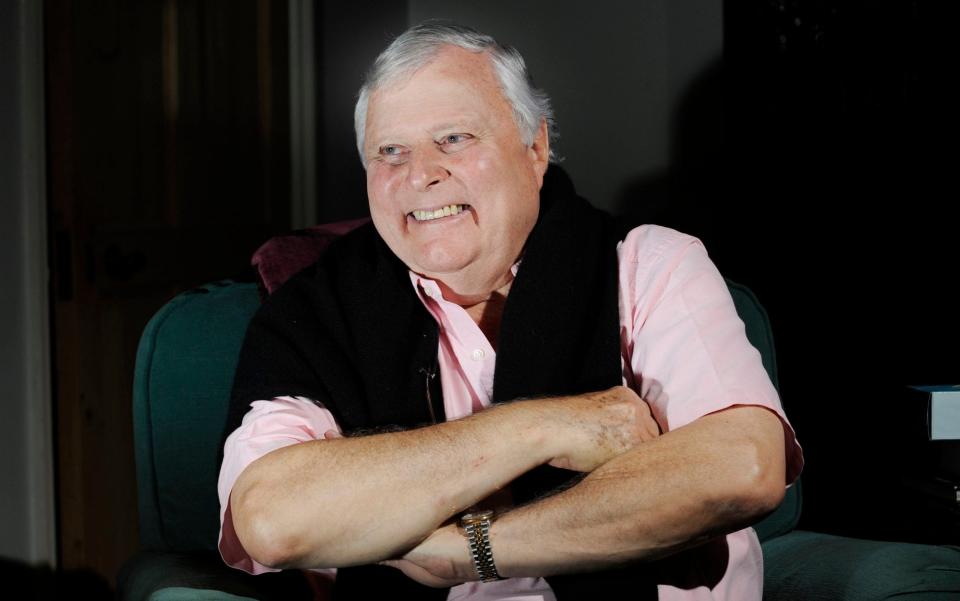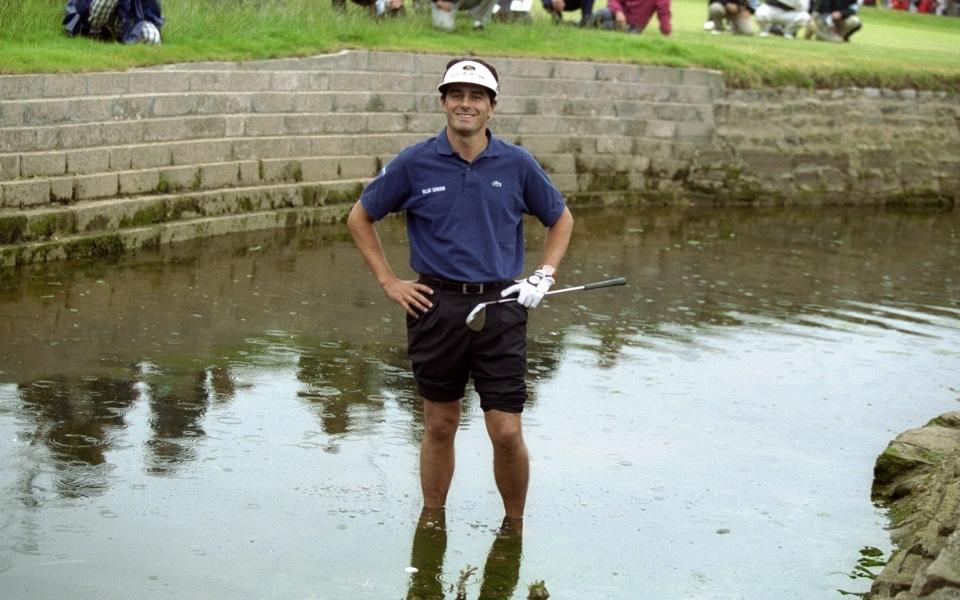Peter Alliss will be remembered as a consummate storyteller and charming rascal to his core

The loss of Peter Alliss, who has died peacefully at his Surrey home at the age of 89, deprives golf not merely of its most mellifluous voice but of a grandee unyielding in his defiance of convention. While the norm today is for television commentators to prepare with ring-binders full of forensic notes, Alliss, famously, would pitch up holding only magazine cuttings scrawled with “dog” or “chicken”, the sparest of prompts for weaving his latest whimsy. Such were the foibles of an incorrigible eccentric, whose 49-year broadcasting career began in the days of black-and-white but who evoked the game he loved with colours of matchless vibrancy.
Decorated though he was as a player, winning 31 tournaments, Alliss endeared himself to viewers through his fascination with golf’s absurdities and esoteric charms, inclined to dwell less on changes to the leaderboard than on the range of whiskies at the local clubhouse. He had the gift, no matter how chaotic the sporting theatre, of distilling precisely what his audience was thinking. As Jean Van de Valde thrashed around in the Barry Burn at Carnoustie in 1999, trousers rolled up to his knees in the Open’s most infamous unravelling, Alliss piped up: “What on earth are you doing? He has gone ga-ga.”
No matter how tense the drama, Alliss could slice through it with a perfectly-timed piece of sideways mirth. John Cleese, no slouch himself in evoking the strange and unexpected, observed on Sunday that if the world were ending, Alliss would be his first choice as narrator.
Alliss had long studied the habits of Henry Longhurst, marvelling at how his mentor could turn commentating into performance art, where an immaculate delivery of the lines could mask all manner of discord backstage. He had a particular disdain, too, for reciting statistics for their own sake. Numbers, he thought, were only ever to be used in service of humour. “5-5-5-4-7,” he said, reading out Duffy Waldorf’s first five holes at the 2002 Open. “It’s like the dialling code for the Tierra del Fuego.”
The surprise is that Alliss was not a literary man by disposition. He claimed that he had only read four books by the age of 40: Lorna Doone, Treasure Island, and two others whose names he could not even remember. And yet in the tradition of the finest spike-bar raconteurs, he was inimitably, effortlessly lyrical.

“There’s one good thing about the rain in Scotland,” he pointed out, in perhaps his most celebrated line. “Most of it ends up as scotch.” A favourite anecdote about St Andrews, involving an American visitor demanding to know where the showers were, was especially well-turned. “Their lordships, sir,” said Alliss, assuming the role of a lugubrious locker-room attendant, “usually repair back to their castles to bathe.”
His flourishes were more than mere embroidery. Alliss pronounced from a position of deep knowledge, having competed in eight Ryder Cup teams and even tutored Sean Connery in how to perfect his game as James Bond in Goldfinger, where the spy would play a round against the eponymous villain.
So preoccupied was he with enhancing his reputation as a player, he made the transition to a life behind the microphone purely by accident. On a flight back from Ireland, his talent for spinning a yarn caught the ear of Ray Lakeland, a BBC producer who was sitting in the row behind him. An invitation to dispense his wisdom during the 1961 Open at Royal Birkdale soon followed, and thus a near half-century of gentle mischief-making was born.
Alliss will be remembered, ultimately, for this impeccable grasp of nuance, for his grip on golf’s tone and tenor, for his portrayals of its languorous rhythms and of the miseries it could inflict on the poor, bemused club hacker. Occasionally, his contributions flew in the face of contemporary sensitivities, not least when the BBC felt compelled to issue an apology for his remark about the wife of Zach Johnson, the 2015 Open champion: “She’s thinking, ‘If this goes in, I get a new kitchen.’”
It was a reflection of Alliss’ resistance to change that he could never understand what all the fuss was about. For the generation of golf fans he captivated, he will be recalled not just as the consummate storyteller but as a charming rascal to his core.

